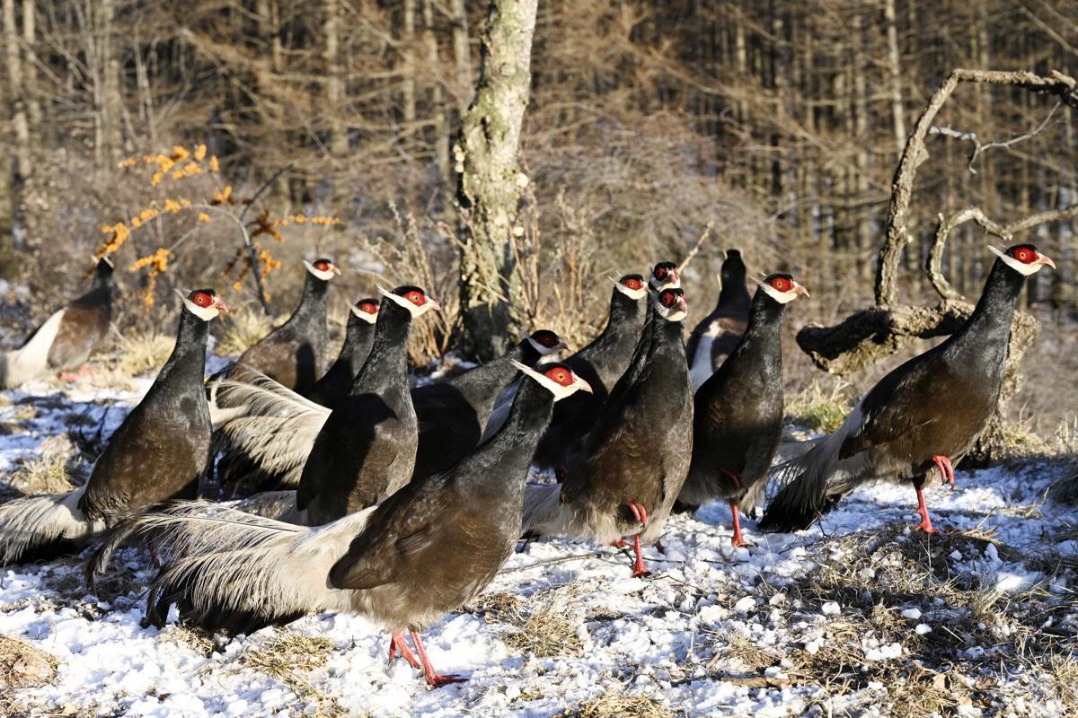China completes field sampling tasks for national soil census

The field sampling tasks for the third national soil census has completed, marking a milestone in the nationwide survey and highlighting its role in supporting China's agricultural modernization and ecological sustainability, officials and experts said on the 11th World Soil Day, which fell on Thursday.
Themed Caring for soils: measure, monitor, manage, this year's World Soil Day underscores the importance of accurate soil data and information in understanding soils characteristics and supporting food security, according to the Food and Agriculture Organization of the United States.
In order to ensure national food security and support high-quality agricultural development with accurate soil data, China launched the third soil survey nationwide in 2022 and has made remarkable progress, an official with the Ministry of Agriculture said during a news conference.
Yang Peng, deputy director of the ministry's department of farmland enhancement, said the soil census has so far mobilized over 400,000 researchers and practitioners, covering 2,860 counties across the country.
"The team has conducted extensive soil sampling across about 730 million hectares of arable land, orchards, forests, grasslands, and other agricultural lands," Yang said.
By Nov 15 this year, the final sampling for the survey was completed and 3.11 million soil samples have been collected. Meanwhile, 88 percent of interior laboratory testing for the samples had been processed. "The census is set to finalize data validation and result compilation in 2025, paving the way for the formulation of outcomes," he added.
The census aims to provide a comprehensive understanding of the current state of soil resources in China, including physical, chemical, and biological properties. The findings will be instrumental in addressing significant shifts in land use and soil quality over the past 40 years, Yang said.
"It provides critical data to protect China's farmland and ensure national food security by mapping the quantity and quality of arable land," he said, highlighting its role to support the construction of high-quality farmland.
Soil fertility will underpin efforts to modernize agriculture, enhance crop quality, and optimize farming efficiency through tailored solutions such as soil-specific fertilization and crop rotation.
In addition, by identifying soil degradation issues, such as nutrient loss and reduced biodiversity, the census supports measures to protect the ecological functions of soil and mitigate the impact of urbanization and industrialization on agricultural land, Yang said.
The survey also aids in optimizing agricultural production and fostering the development of special agricultural products to boost rural economies and farmers' incomes, he added.
Zhang Jiabao, head of the expert advisory group for the survey and an academician of Chinese Academy of Engineering, said the major outputs will include detailed data sets, comprehensive maps, in-depth reports on soil conditions, and an intelligent soil sample library.
The census results will play an important role in practical applications, including optimizing crop layouts and promoting rural vitalization, Zhang said.
The team analyzed the unique characteristics of local agricultural products by surveying the physical properties, chemical nutrients, and microbial conditions of the soil in these regions.
"This will help identify the geographical and soil conditions that contribute to the formation of special local products, enabling us to better utilize the advantages of soil resources for future planning and development of specialty agricultural products," Zhang said.
For instance, during pilot studies, regions such as Jiangxian county in Shanxi province identified suitable planting areas for crops such as forsythia and bupleurum, while Gaozhou in Guangdong province and Yuzhong in Gansu province developed planting plans for lychee and lily production based on unique soil characteristics, he added.
- China completes field sampling tasks for national soil census
- Guangzhou plans to regulate the total number of electric bicycles
- Green Grows the Future
- 'Understanding the Chinese Nation' seminar explores unity in diversity and shared development
- Once near extinction, native pheasant now recovering
- Raising efficacy key for integrating TCM with modern medicine, expert says





































